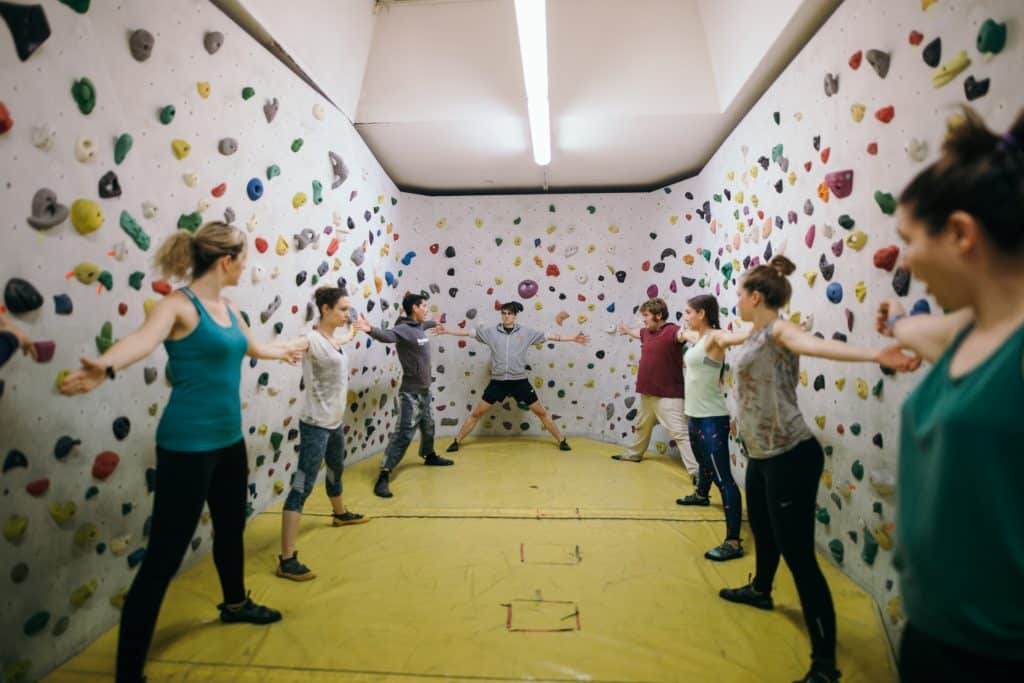Collaboration vs. Competition

What would systems look like if, instead of competing, we would collaborate?
By Emily Swaddle, first published on 18 December 2018
During the Climate Innovation Summit in Dublin, one after other speakers and panelists highlighted the need for deep systems change. We cannot simply adjust our way of walking down this same old path rather we must immediately and dramatically redirect ourselves as a society, they declared. Given the dire urgency of the global situation as outlined in the recent IPCC report, I am inclined to agree with them. So-called ‘business as usual’ got us into this mess so if we are to scrape our way out of it avoiding major environmental or social disaster, we need a new business. Or we need to quit business altogether.
In the context of Mission Finance, the theme of this year’s Climate Innovation Summit, my insights into potential systems change are somewhat limited, to say the least but it got me thinking about other drastic turnarounds that might be worth exploring. As part of the research project for the CKAA redesign, I have spoken to numerous members of, designers of and researchers of innovation communities. One common thread throughout these conversations has been the concept of collaboration: its importance, how to nurture it, the environmental factors that affect it, and its pay-offs. Not unlike a temperamental houseplant, collaboration can take work to grow but it’ll clean the air, improve the view and once you’ve had it you can’t go back to living without it.
The more I thought about collaboration, the more I noticed its absence. Many of the systems of our society are based on competition rather than collaboration.
Whether it’s to secure financing, to gain political backing or even just to have your idea heard, we have to compete at every level of innovation and social action. It’s a dog eat dog world out there. But what would these systems look like if, instead of competing, we would collaborate?
Hold your horses there, I hear you say, I’m all for collaboration but do we have to push aside competition to do it? Isn’t competition a fundamental part of human nature? Don’t we have to compete in order to find the best solutions to fix global issues? Doesn’t it separate the wheat from the chaff?
Here’s the thing. One of the problems with competition is that it is restrictive by nature. More often than not there can only be one winner. On a planet of over 7 billion people with just as many problems to be solved, the one-size-fits-all approach simply does not make sense. At this stage in the game, we need to stop being picky about who or what succeeds and start recognising the wealth that diversity can bring. Business as usual isn’t working so why not let everyone have a go at fixing it. With collaboration as a baseline, what might we be able to achieve? Which ideas might be allowed to grow that would otherwise never have seen the light of day?
This is the kind of U-turn systemic shift that could help us to make real impact at record pace. I’m not saying this would be an easy transition, indeed drastic changes rarely are. It would require a mindset shift on the largest scale. It would ask us to put aside our individual egos, to acknowledge our needs and shortcomings as well as our strengthens, it would ask us to be aware of those around us and to recognise these things in them too. It would take a whole new understanding of how we utilise and distribute resources, including funding and time. (I am not convinced that we currently use either of these resources effectively. I am also not convinced that we don’t have enough of the former to go around but I am sure we are running out of the latter.) Undoubtedly this model would take a lot of trials and failures to reach successes but isn’t that how we should be working anyway?
Experimenting and learning to until we get it right. At its core, it would ask us to be uncompromisingly open. Early on in this research process, I accepted that openness is a non-negotiable in the development of effective communities.
This mindset of extreme collaboration is exactly what we want to harness in my work with the Climate-KIC Alumni Association. I believe that this model will allow community members to be empowered, engaged and active in the fight against climate change. One big push towards a common goal through thousands of significant collaborations. Just think of the potential power behind this climate-action wave. As we work to build an active and impactful community, it makes all the sense in the world to ditch competition and go deep into collaboration. If now isn’t the time to make collaboration the societal norm, when is?
Looking forward to 2019 and beyond, a small team of Climate-KIC alumni and Climate KIC staff are working on a redevelopment of the Alumni Association. In the spirit of openness and working out loud, we will pen a series of blog posts to share our insights, questions and discoveries along the way. All comments, suggestions, big thinking and provocations welcome!
